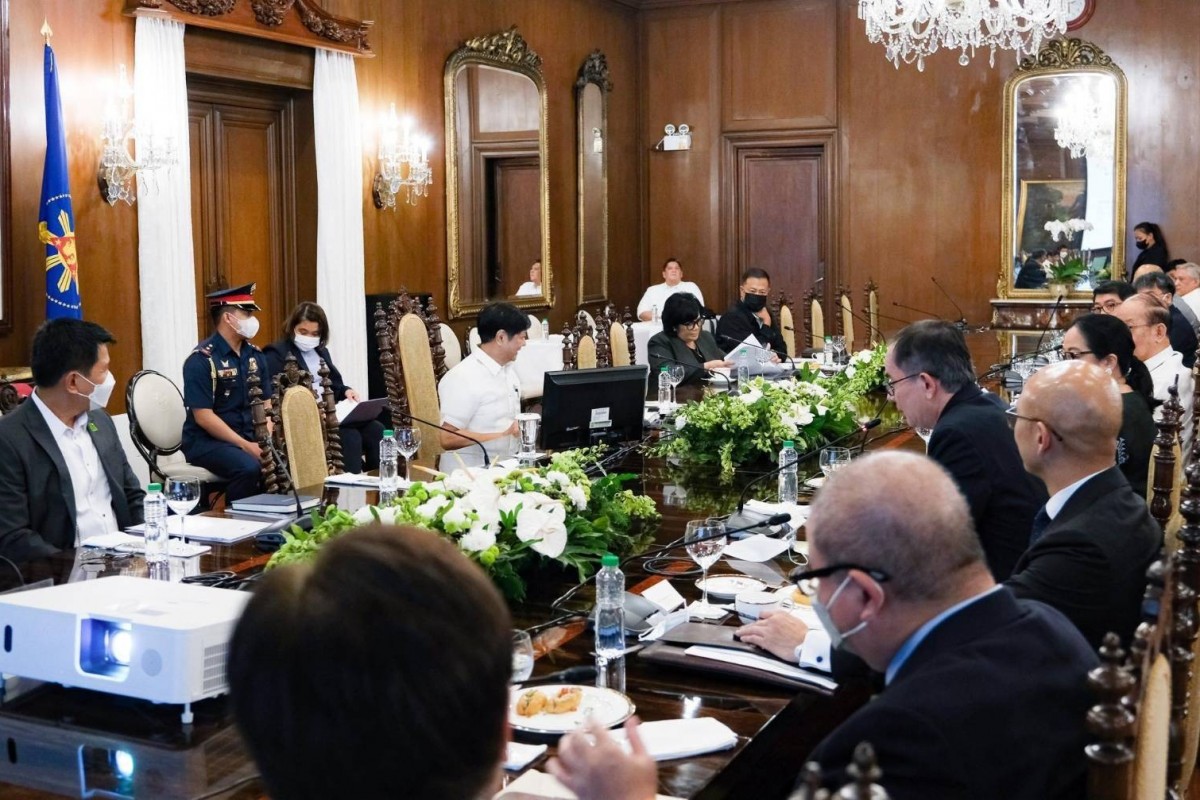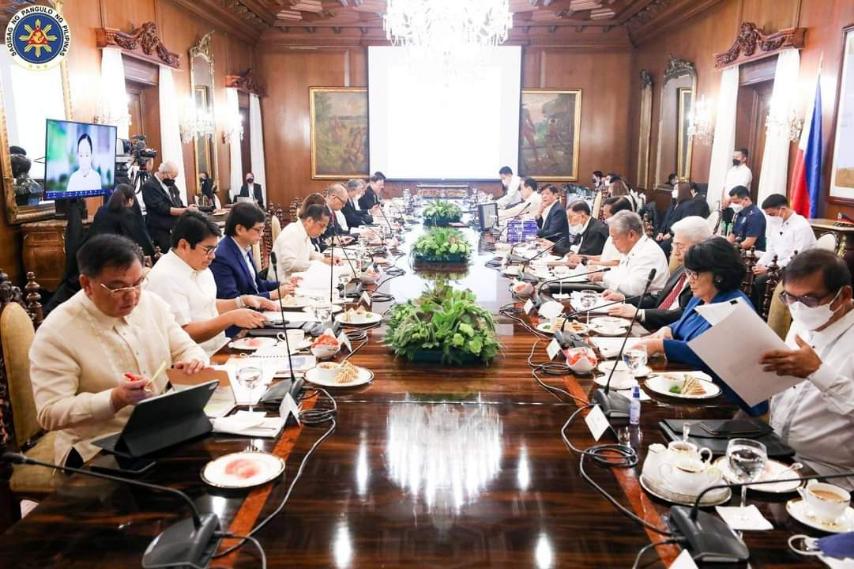MANILA -- President Ferdinand R. Marcos on Friday met with the agriculture cluster of the Private Sector Advisory Council (PSAC) to discuss his administration’s agriculture priorities, specifically measures to ensure food security in the country.
During the meeting in Malacañang, Marcos received recommendations from the PSAC on digital farming methods and supply chain improvement strategies that will boost the government’s food security program.
The PSAC also proposed the review of the policies and structure of the National Food Authority (NFA) to enable the agency to operate as a logistics hub and reduce losses for the government.
Marcos also made clear his plan for the institutionalization of the Department of Science and Technology’s digital platform Sarai that will provide agricultural stakeholders with site-specific crop advisories based on data gathered from Diwate micro-satellite.
Through the DOST program, farmers and fishermen will be able to access real-time and updated information on farm conditions, including weather outlook, drought and flooding forecasting, disease detection and infestation
To improve the income of farmers, Marcos ordered the acceleration of replanting of coconut trees and distribution of seedings as well as intercropping for better land use.
Marcos also issued directives to control the African Swine Fever, particularly the strict implementation of all measures put in place to control ASF, including the ban on all trucks with pig and pork products from outside Panay region for 60 days.
The chief executive also told the Department of Agriculture to review the Act for Salt Iodization Nationwide (ASIN) law to revive salt farming as an additional livelihood for the fisherfolk to augment their income.
The ASIN Law, or the Republic Act 8172, is the requirement of the addition of iodine to salt intended for animal and human consumption in a bid to eradicate micronutrient malnutrition in the country. (OPS)





